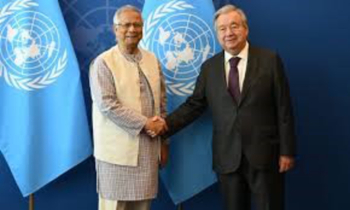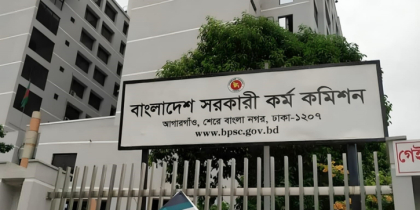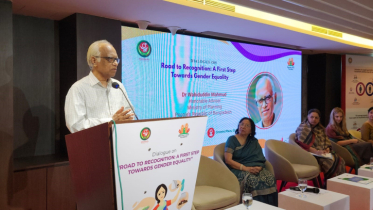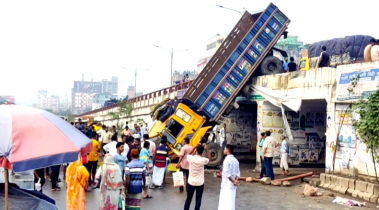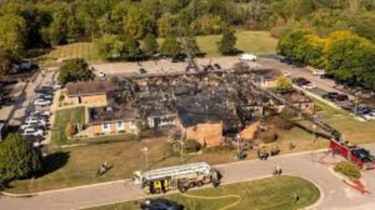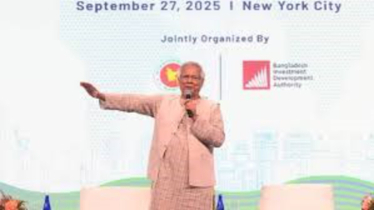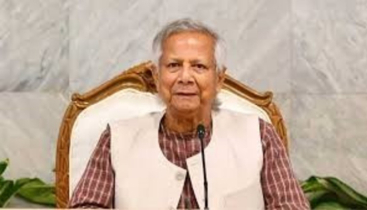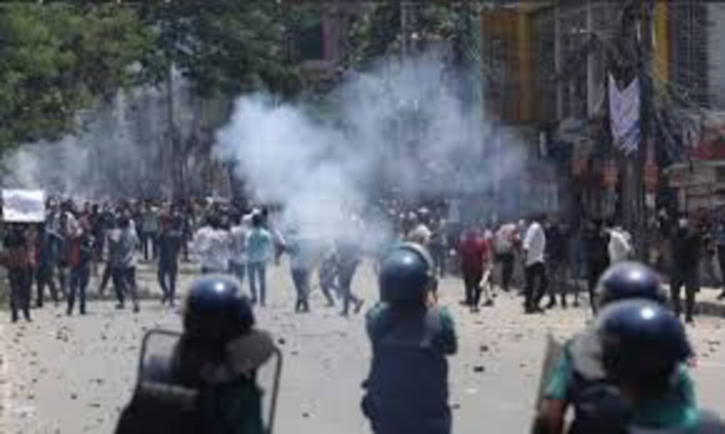
Police discharged some 3,05,311 rounds of ammunition across Bangladesh during last year’s July uprising in an attempt to quell anti-government protests, the International Crimes Tribunal (ICT) was told on Monday.
Md Alamgir Mia, the investigation officer (IO) in the crimes against humanity case against ousted prime minister Sheikh Hasina and two of her aides, presented the figures while testifying for a second day before ICT-1.
According to a 225-page Police Headquarters report cited by Alamgir, a total of 3,50,311 rounds of bullets were fired nationwide, including 95,313 rounds in Dhaka city alone. The report also detailed the use of a range of lethal weapons such as LNGs, Chinese rifles, shotguns, revolvers and pistols.
The three-member ICT-1 bench, chaired by Justice Md Golam Mortuza Mozumder, recorded Alamgir’s testimony as the tribunal’s 54th witness in the high-profile case.
The trial of Hasina, who was indicted alongside former home minister Asaduzzaman Khan Kamal and ex-inspector general of police (IGP) Chowdhury Abdullah Al-Mamun, has entered a decisive phase, with testimony expected to conclude on Tuesday before the start of arguments in early October.
Prosecutors said both the prosecution and defence will present arguments next week, after which the tribunal is expected to announce a date for its verdict. Since two accused are absconding and the third has turned approver, the argument phase “doesn’t seem to take much time,” an ICT prosecutor noted.
Hasina and Kamal are represented by state-appointed lawyer Amir Hossain as both remain on the run.
Mamun, who is in custody, is serving as a state witness in the case. All three were charged on five counts, including mass killings, murder and torture of protesters during the 2024 uprising. If convicted, Hasina and Kamal could face the death penalty.
Most witnesses have demanded capital punishment for Hasina over what they described as atrocities committed during the crackdown.
Political parties and large sections of the public have also called for her trial to conclude before the next general elections.
A UN human rights office report estimates that up to 1,400 people were killed between 15 July and 5 August 2024 as Hasina’s government ordered a security crackdown on protesters.
She fled Bangladesh on 5 August after her downfall was ensured by the student-led movement.
Alamgir also told the tribunal that his team had obtained reports from investigation committees into the killings and torture of students in Dhaka, Rajshahi, Chattogram and Begum Rokeya University in Rangpur, as well as a Rapid Action Battalion (RAB) report on helicopter deployments.
He said post-mortem and autopsy reports for 81 unidentified bodies had also been collected.
On Sunday, during his first day of testimony, Alamgir had presented 17 video clips to the tribunal, including footage of the killing of Abu Sayed and other incidents described as “barbaric” during the 2024 uprising.
ICT-1 formally took cognisance of the charges on 1 June and framed charges on 10 July, ordering the start of the trial.
On that day, Mamun announced his decision to testify as a state witness, pledging to “reveal all the secrets” of the July massacres.
Hasina also faces two other pending cases before the tribunal: one concerning disappearances and killings during her 15-and-a-half-year rule, and another linked to the 2013 killings of Hefazat men at Shapla Chattar in Motijheel, Dhaka.
Source: Daily Sun
TH

.png)
